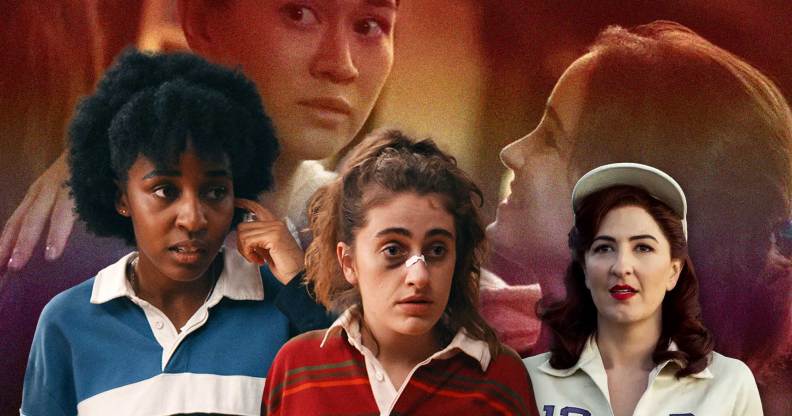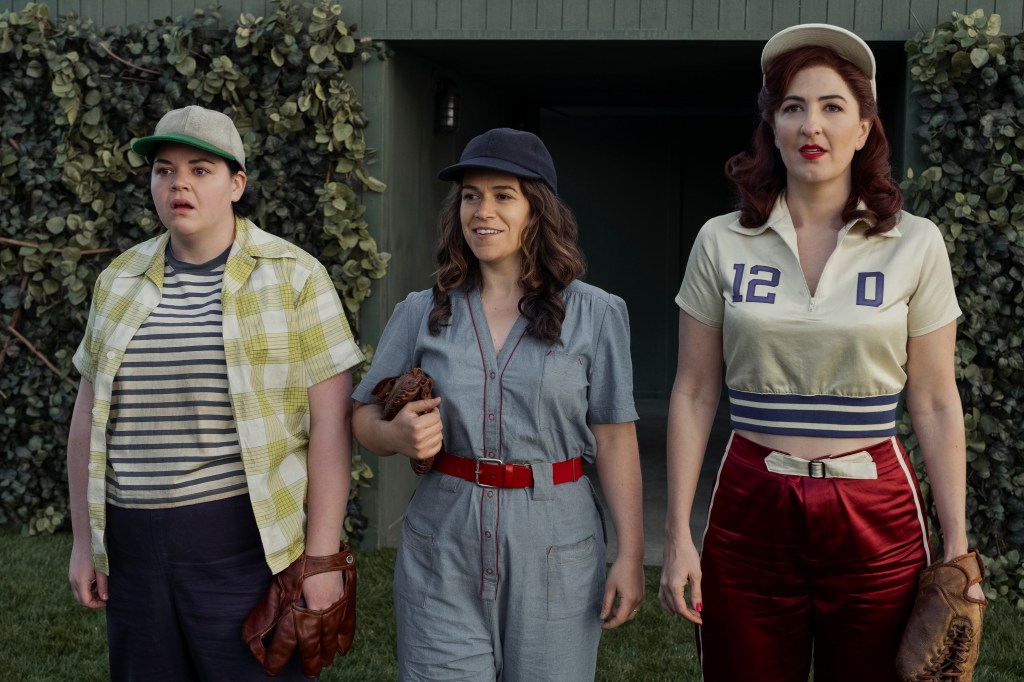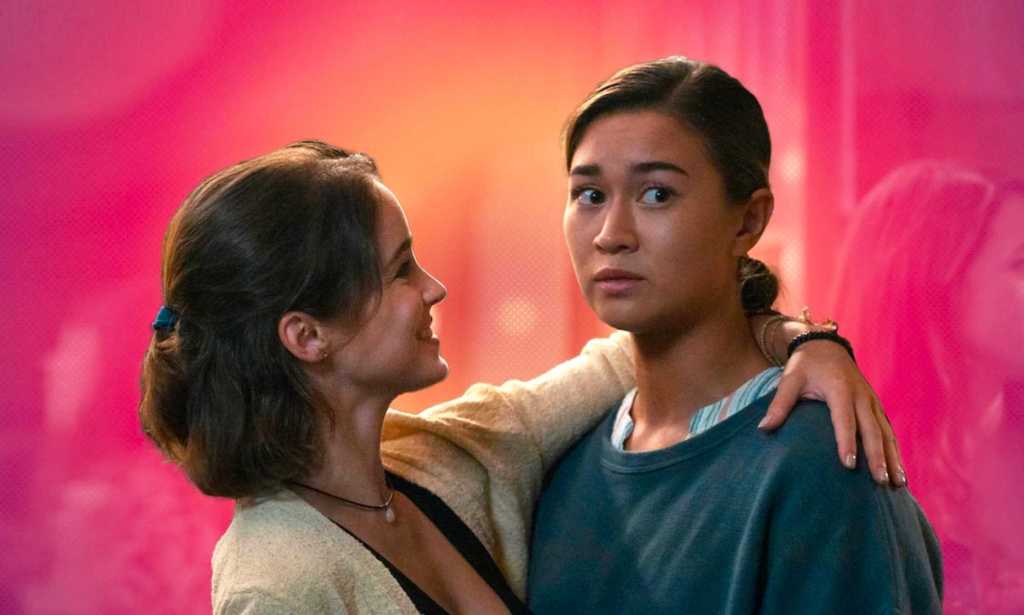Bottoms’ box office success proves the power of queer female-led stories amid slew of TV cancellations

Bottoms finally has a UK release date. (Orion Pictures/Prime Video/Netflix)
As the LGBTQ+ TV fans come to terms with one unceremonious axing after another, the success of Emma Seligman’s lesbian teen comedy film Bottoms proves queer female stories aren’t just needed – they are desired.
It’s been a year of extremes for LGBTQ+ TV and film: HBO’s post-apocalyptic masterpiece The Last of Us won rave reviews for its touching portrayal of queer love across the ages, while streaming platforms found major success with the gay and bi male-led Heartstopper and Red, White & Royal Blue.
Despite these wins, LGBTQ+ shows from major production companies – more often than not those featuring queer female stories and characters – ended up consigned to the dustbin of TV history before their time.
Now, Seligman’s raunchy high-school romp, starring Rachel Sennott and Ayo Edebiri as teenage lesbian losers PJ and Josie respectively, is breaking through the noise with its subversive humour and platforming of messy sapphic characters.
When PJ and Josie set up a fight club to pick up hot cheerleaders and have sex before graduation, they encounter their fair share of cringey, awkward flirting attempts, brutal rejection and school-wide fist fights along the way.
The level of Bottoms‘ R-rated hilarity is matched only by its real-world success since it opened in US cinemas at the end of August, with a record-breaking opening weekend.
Premiering on just 10 screens across the US, it earned an average of $51,625 (£41,000) per venue – the highest figure for a pandemic-era movie that opened on that number of screens or more.
Bottoms did not lose momentum during its second week as it expanded to more than 700 screens. According to Deadline, it broke into the top 10 films for the weekend (at number seven) and is set to increase to 1,200 cinemas in the coming weeks.
While Bottoms might seem like a natrual addition to the teen comedy genre, following in the footsteps of classic queer hits But I’m A Cheerleader and Booksmart, its success is no mean feat.
Ever since August 2022, when Warner Bros DC Studios cancelled the almost-completed Batgirl film, which featured the DC universe’s transgender character, the bad news has continued to roll in from all corners of the streaming world.
Netflix has seen a major backlash from queer fans for chopping Warrior Nun, First Kill, Fate: The Winx Saga, 1899 and The Bastard Son & The Devil Himself in recent months.
Elsewhere, Amazon Prime faced the wrath of cast, crew and devoted fans after prematurely cancelling sapphic-led historical drama A League of Their Own, while Disney+ pulled fantasy series Willow from its platform after introducing a queer romance.

Needless to say, as films and shows focusing on queer (and often white) male leads, such as Young Royals, Heartstopper and Red, White & Royal Blue continue to be renewed and celebrated, the treatment of those championing queer female representation is troubling.
The idea that LGBTQ+ stories fronted by women are less lucrative and only serve a small viewer base has been pedalled by various sources. In January, Netflix co-chief executive Ted Sarandos sparked outrage after addressing the slew of cancellations by claiming “a lot of these shows were well-intended but talk to a very small audience on a very big budget”.
After the cancellation of A League of their Own, co-creator Will Graham hit back at the notion that the show only catered to a “niche” audience.
“Journalists, please stop reinforcing the narrative that POC/queer shows are inherently niche or small if you don’t have data. That narrative is racist and homophobic and all the other stuff,” they tweeted.
The powerful impact of these shows can be witnessed in the vigour of the fan campaigns launched following their cancellation.
LGBTQ+ Netflix series One Day at a Time got picked up by another platform after the fandom banded together. More recently, Warrior Nun secured a film trilogy deal to wrap up its story after a concerted fan campaign, consisting of petitions, billboards and a viral hashtag #SaveWarriorNun. Meanwhile, A League of their Own fans are embroiled in an online campaign to salvage the show in some form.

It all proves that queer fans hold mighty power and will back these stories, characters and, by extension, networks to the hilt, if given the chance.
The critical and commercial success of Bottoms proves that queer female-led stories are not only financially lucrative but can have huge clout in mainstream media, appealing to more than just a ‘niche’ audience.
It’s a fact that may be obvious to queer women who witnessed the brilliant Oscar-sweeping triumph of A24’s global sensation Everything Everywhere All At Once, which undoubtedly showed that their narratives (this time in the form of Stephanie Hsu’s troubled lesbian character) generate well-deserved buzz.
LGBTQ+ female-centric stories are for everyone. They document the universal feelings of love, pain, desire and self-exploration. Just as we have seen countless variations of the same straight characters, queer women deserve to see themselves in all forms – the good, the bad and the ugly.
Bottoms is in US cinemas now. There is currently no UK release date.

